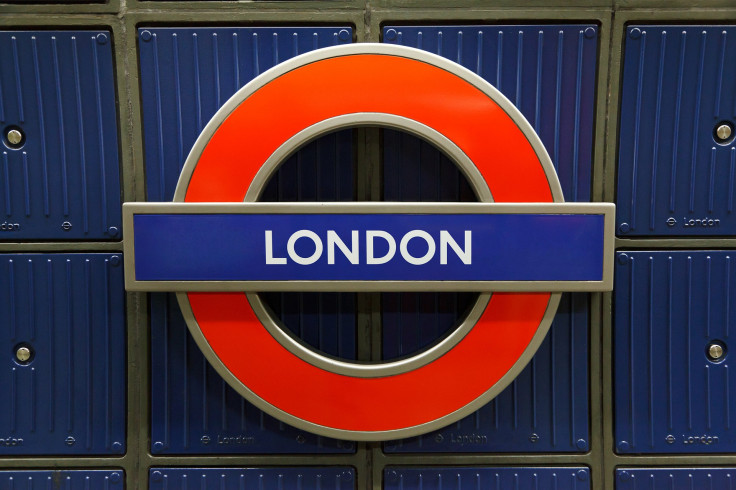UK's post-Brexit chemical regulations raise concerns over public health and environmental safety
After Brexit in 2021, the UK adopted its chemical regulation, Reach, separate from the EU, raising eyebrows as the rules between both governing bodies differ.

In a concerning revelation, it has come to light that several toxic chemicals banned in the European Union (EU) since Brexit are still permitted for use in the United Kingdom (UK).
Campaigners and environmental experts argue that this divergence in standards poses a significant risk to public health and the environment.
Since the UK exited the EU in 2021, it has implemented its own chemical regulation framework called Reach, distinct from the EU's system. This shift has raised eyebrows as the EU has adopted eight rules restricting hazardous chemicals post-Brexit, with 16 more under consideration.
Meanwhile, the UK has not imposed any bans on such substances during this period, except for considering restrictions on lead ammunition and harmful ingredients in tattoo ink.
Typically, bans on chemicals are preceded by their inclusion in the "substances of very high concern" list. Notably, the last additions to the UK's list were made over three years ago, in June 2020, whereas the European Chemicals Agency (ECHA) has added 26 substances to its equivalent list during the same timeframe.
These substances are typically those that exhibit carcinogenic or reproductive toxicity, environmental persistence, and bio-accumulative properties. When a chemical joins the EU list, companies are obligated to promptly provide consumers with information about safe usage levels and it opens the door to further regulation or outright bans.
Chloe Alexander, representing the Chem Trust charity, emphasised the effectiveness of the EU's regime in spurring innovation towards safer alternatives to listed substances. The EU's list serves as a signal that further regulation or bans may be forthcoming, thus incentivising companies to explore safer alternatives proactively.
However, in the UK, there appears to be a trend towards deregulation. The evidence threshold for regulatory action has been raised, resulting in prolonged reviews before any measures are taken.
Alexander noted: "They look at what the EU is doing and say: we need more evidence. Everything is happening much slower. The EU has very thorough risk assessments, with input from companies worldwide. There is absolutely no reason why we should not adopt those EU control(s) and it also poses problems for trading with the EU if we continue to fall further and further behind."
Recently, it was reported that numerous pesticides banned in the EU were still permissible in the UK, further fuelling concerns about the nation's chemical regulations.
Campaigners argue that these delays in implementing robust chemical regulations indicate that promises made by ministers after the Brexit vote may have been broken. In 2017, Michael Gove, the then-environment secretary, had been asked how the UK would regulate chemicals post-Brexit, to which he simply replied: "Better".
Interestingly, green campaigners have highlighted the irony that the UK played a pivotal role in establishing the EU's gold-standard chemical regulation regime. Yet, today, the UK manages its own system, which some perceive as being less comprehensive and lagging behind the EU in tracking and regulating hazardous substances.
Roz Bulleid, representing the Green Alliance thinktank, argued: "The UK played a key role in setting up the EU's gold-standard chemicals regime, and yet now we are administering our own cut-price system and lagging behind the EU in tracking and regulating harmful substances. It shows that government promises of maintaining environmental protections through Brexit are not being kept."
In light of this situation, wildlife groups have called upon the UK government to, at the very least, align its restricted chemicals list with that of the EU. Richard Benwell, head of the Wildlife and Countryside Link, expressed concerns about the continued allowance of toxic chemicals banned in the EU within the UK, with potentially dire consequences for wildlife and public health.
He urged the Department for Environment, Food and Rural Affairs (Defra) to adopt EU restrictions on hazardous chemicals unless strong evidence suggests otherwise. Benwell also emphasised the importance of banning the most hazardous substances and treating similar chemicals as groups to prevent one dangerous substance from being replaced by another. He stressed the need for a precautionary approach to minimise the risks posed by harmful chemical mixtures in the environment.
A spokesperson from Defra responded to these concerns by asserting that UK Reach retains the fundamental principles of EU Reach, including a commitment to ensuring a high level of protection for human health and the environment.
The spokesperson further explained that the independent UK framework allows for a more tailored approach to prioritise pressing concerns specific to Great Britain. Defra is actively engaged in a programme to gather GB-specific evidence on the risks and exposure pathways associated with hazardous substances.
© Copyright IBTimes 2024. All rights reserved.






